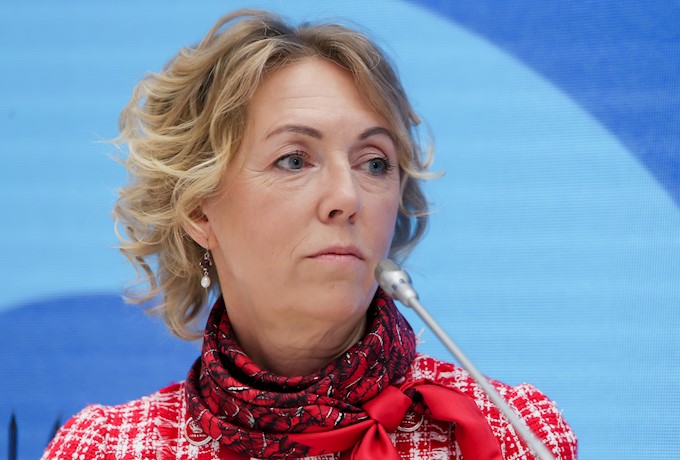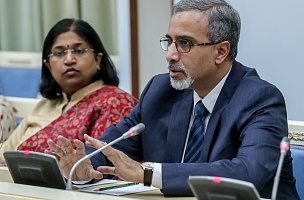KEY CONCLUSIONS
Universities are changing but some are not ready to change
«We are certainly keeping most of the technology that we have been getting used to throughout the previous year. We are keeping it in our lives because it is no longer possible to ship it back ... The university is changing even (in terms of — ed.) space ... we need other spaces to organize the process,» Darya Kozlova, First Vice Rector, ITMO University.
«The university is expected to produce a sufficiently large number of well-trained and motivated graduates to do their job... How does the university presumably solve this problem? First of all, it trains... now everything in this area is changing dramatically. I think it is becoming very difficult, especially for universities, given how inert they are in terms of any kind of change,» Andrey Ivanov, SVP Investments, Research and Education, JetBrains.
Lack of humanities training in tech majors
«We all are, of course, too technocratic. This technologization is crazy. It actually, so to speak, raises people disabled in a humanitarian sense. We need much more humanitarian, universal, cultural values... It is really necessary to teach history, and the Russian language, and some general cultural things: it will help in other areas, including physics, mathematics, and further technologization,» Andrey Ivaschenko, Chairman of the Board of Directors, ChemRar High-Tech Center.
PROBLEMS
Universities see each other as competitors, not partners
«The problem is that universities are competing. Universities do not see each other as partners in organizing the optimal educational trajectory for each student,» Andrey Ivanov, SVP Investments, Research and Education, JetBrains.
Lack of qualified graduates and professors
«Let’s talk a little bit about these numbers. These are your graduates versus how many the country actually needs. This, of course, is an enormous discrepancy... In general, it is a global problem. There is a lack of specialists with seriously advanced digital skills all around the world... And the education system is moving so slowly. And on the other hand, who are the teachers who... will train all the people that we need,» Julia Chupina, Senior Vice President, Sberbank.
Difficulty choosing an educational trajectory for a student
«The educational system is set up so that when a person has a lot of time to study, he or she has no idea what he or she wants. We start limiting the student’s development vector in fifth grade: if you did not go to the physics club in fifth grade, then the chances that you will get into a serious tech university later are slim. How does he or she knows in fifth grade what they really want?» Andrey Ivanov, SVP Investments, Research and Education, JetBrains.
SOLUTIONS
Personal trajectory and interdisciplinary approach in education
«The hyped-up trend that a lot of people are talking about is the individual educational trajectory. It is trying to find each student his or her best path,» Andrey Ivanov, SVP Investments, Research and Education, JetBrains.
«Another important aspect for the university of the future is interdisciplinarity and mixing... We need to think of mechanisms that will allow students to meet (physicists with biologists and programmers), to mix in a common project. But most importantly, they need to ask themselves a question „Am I where am I supposed to be?“ at all,» Darya Kozlova, First Vice Rector, ITMO University.
Interaction between universities and business
«At ITMO, we count on cooperation... not competition... and cooperation should happen outside of strictly academic environment, with businesses and so on,» Darya Kozlova, First Vice Rector, ITMO University.
«On the one hand, university teams need to know that collaborating with business is a good thing. It does not distract from academic activities but adds practical value to their educational work. Their students can look at what business is and, on the one hand, help us solve a problem. On the other hand, they can start thinking about where they want to go further, maybe launch a startup. It would be ideal to have some kind of a centralized platform... And so that this link with grants and financing works well, but on the other hand someone has to keep lobbying the regulator,» Julia Chupina, Senior Vice President, Sberbank.
«The next step is what we call long-life learning. It should be available not only to individuals, but it should also be for companies... We need to help companies acquire knowledge and skills that help them develop,» Natalya Popova, First Deputy General Director, Innopraktika.
Establishing a connection between professors and students
«A very important idea that is not always present in Russian universities — but at the one that we strongly advocate at ITMO — is „everyone is equal to a professor.“ I think we need to foster horizontal connections. A student should be able to go up to a professor and talk to him or her, ask for their advice. There should be an environment and conditions for this,» Darya Kozlova, First Vice Rector, ITMO University.






